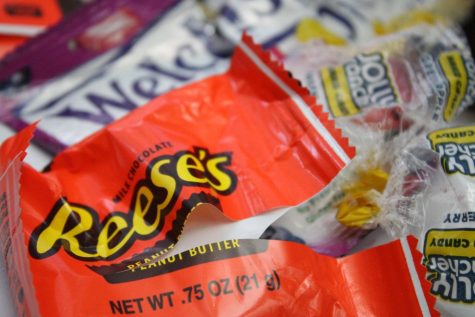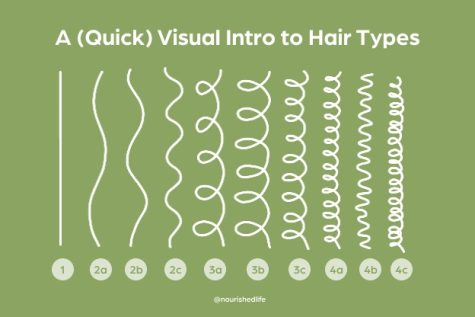A Deconstruction of Asian-American Racism: and What Asian-Americans can do to combat it
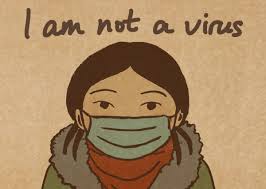
Oftentimes, Asian-Americans are blamed for causing the Coronavirus outbreak, an outbreak that started in Wuhan, China.
When I was 12 years old and in eighth grade, I gained a better understanding of how the world works. I was biking alongside my friend at Naperville Crossings. That summer we were experiencing a first taste of freedom that gave us a nervous excitement – nervous because we would lose many of my friends to the transition to high school, excitement because we would get to spend the rest of the summer with them. We were biking through Crossings to get to the park near Fry Elementary School, which was where our stomping grounds were. I remember it was a sweltering day- hot enough that I decided to wear a neon green Under Armour shirt and blue basketball shorts that, looking back, probably showed too much of my pasty, skinny legs. As we were crossing the Panera on the corner, a group of teenagers called out to us ”Hey you, yeah I’m talking to you! Go eat some sushi and go back to China!” They called out several slurs to my friend as well – slurs that he never heard because I silently pretended not to hear them as we biked past, and never told him afterward.
At that moment, I didn’t do anything, but I remember wanting to go back and fight them, even though they were several years older than I was. My face was hot. I did this thing when I was a little kid when I got angry, I clenched my jaw and furrowed my brow, and I sat in my childish anger, letting it fester like an open sore. Beyond the anger, I felt hurt. It confused the 12-year-old me that there would be some people that chose to hurt others for no good reason, and it still confuses me to this day.
Like every other minority, I’ve learned how to deal with it in public, to keep my head down, and take it in stride. The most important thing about that routine? Never speaking or confronting the abuser, as it allows us to mitigate any possibility of future conflict. As a Korean-American born of two immigrant parents, that’s how I was raised. I’ve always understood that my existence walked a very precarious line between being an outsider and a model minority. Being an Asian-American is special among minorities because it guarantees you a safe position, as long as you allow yourself to be fitted into a cultural position of invisibility. Sometimes, it’s not a choice, you just have that position thrust onto you, like an undesired gift that somebody thought would be just what you wanted. Either way, it puts you into a position where you feel like you’re not allowed to speak about your trauma because you’re not allowed to feel it.
See, that cultural position of invisibility, – the position Asian-Americans hold in the American cultural landscape known as the “model minority”- invalidates the pain that you experience. For all minorities, even just existing, we are predisposed to a whole host of mental health issues. According to Robert T. Carter in a study done in 2007 titled “Racism and psychological and emotional injury: Recognizing and assessing race-based traumatic stress… Research on post-traumatic stress disorder (PTSD) indicates that African-Americans, Hispanics, Asians, American Indians and Native Hawaiians have higher rates of PTSD than Whites.”
That trauma expresses itself in different ways. For me, I feel like it’s not fair for me to speak about what I’ve experienced because that’s what we’re taught as Asian-Americans: we don’t have it bad. That somehow, we’re not beautiful, that we should not speak, that we don’t belong in this country. At the same time though, all of our protesting against those inequalities is invalid because of the fact that we don’t have it bad. We’re invisible.
On Mar. 16, 2021, I, along with millions of other Americans, opened my phone to the news that there had been a series of mass shootings in Atlanta, GA. The suspected gunman had opened fire in three spas or massage parlors, killing a total of 8 people. As of today, the suspect has still not been charged with a hate crime, despite the fact that 6 of the people killed were Asian Women and the fact that an employee of one of the massage parlors that escaped stated that the shooter said “I’m going to kill all Asians.” During a police press conference, Captain Jay Baker of the Cherokee County Sheriff’s Department described the man who had just committed mass murder by saying ”I guess it was a really bad day for him and this is what he did”.
We need to stop acting like this shooting was a surprise. Something like this has been brewing, festering for quite some time after a year of despicable rhetoric from top American officials, using racial epithets such as the “Chinese rhetoric” and “Kung Flu.” American officials knew what they were doing by creating a scapegoat of Asian-Americans. To them, there had come a point in history where our usefulness as a model minority was lessening, so they shifted us into a position of blame for COVID-19. This led to increasingly bold attacks on the Asian-American community, culminating in the Atlanta shootings.
I remembered the subsequent exhaustion after seeing news of the shooting. For quite a white, I avoided every news story concerning the shootings and Asian-American hate and crawled up into a little ball in my bed with my blankets drawn around me like a cocoon. That was a painful week for not only me, but for the Korean-American community in particular. Days after the shooting, the South Korean Ministry of Foreign Affairs released a statement saying that 4 of the people killed were women of Korean descent.
In Korean culture, family is significant. Koreans respect their elders, and there’s a sense of belonging between each of us- a familiar older figure we call hyung or noona, big brother or sister – and a familiar adult we call imo or samchun, aunt or uncle. These words highlight the culture of interconnectedness that we share and foster. Koreans are family. We’re a community. Regardless if we have blood ties or not we will always be each other’s brothers, sisters, sons and daughters. For me, it broke my heart that my own aunt and uncles were being spat on, beat up and at times killed, for simply existing in this country. That pain taught me a very important lesson.
Whenever we hear news of something tragic we tend to say the words “my thoughts and prayers go out to the victims” or “my thoughts and prayers are with them.” Thoughts and prayers. Thoughts and prayers are not words and actions. Whenever there is a tragedy in American culture, there is always a recovery period. For the Asian-American community, our recovery period needs to start with something that we’re typically taught not to do- open, honest, critical conversations that might leave somebody uncomfortable. Culturally, we are taught to be silent. From where we came from, it was a matter of respect for others. At this point in time, however, we need to hold that same respect for ourselves. We need to use our voices, conducting ourselves in a manner where we can look not only our parents in the eye, but also our children, and tell them “I did this because we are worthy of existence. I did this because we belong here. I did this because I am not only Asian-American, but American and Americans are proud, courageous, and strong.” That way, not only will we be a stronger community as a whole, but we can also help generate a national conversation, keeping us that way for many years to come.
Your donation will support the student journalists of Neuqua Valley High School. Your contribution will allow us to print our next newspaper edition as well as help us purchase equipment and cover our annual website hosting costs.



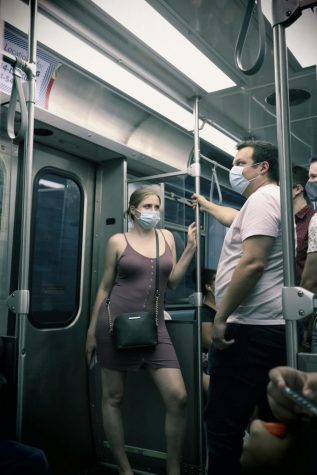
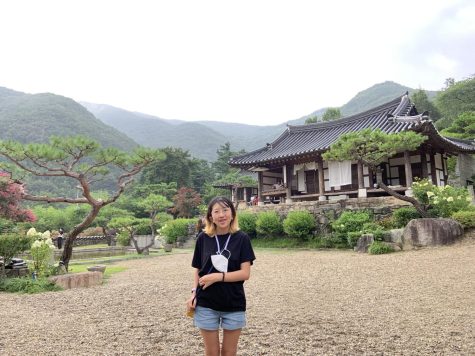
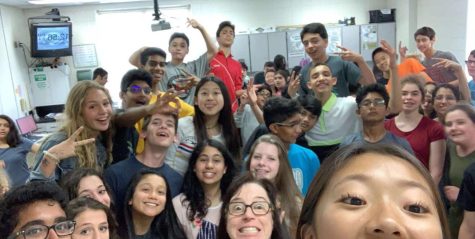
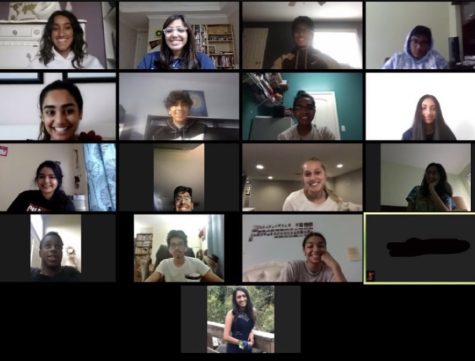
![On every anniversary of the Sept. 11, 2001 attacks, the Tribute in Light is held near the World Trade Center. This art installation features 88 searchlights shone from dusk to dawn, which create two pillars of light that according to 9/11 Memorial & Museum, “[honor] those killed and [celebrate] the unbreakable spirit of New York.”](https://nvhsecho.com/wp-content/uploads/2021/09/trib-l-475x317.jpg)
